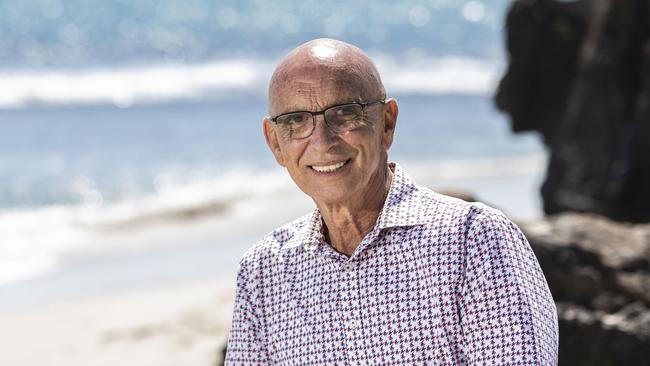Our Clive Palmer law will save taxpayers billions

Such is the case with Queensland billionaire Clive Palmer, who has launched numerous actions against the state of Western Australia in numerous jurisdictions.
Palmer’s attempt to bring down WA’s border restrictions, which are keeping our people safe from the COVID-19 pandemic, is creating a lot of headlines.
And it is understandable that the passage with bipartisan support of the Iron Ore Processing (Mineralogy Pty Ltd) Agreement Amendment Act 2020 through state parliament at speed this month has led to some confusion in relation to the WA government and Palmer.
As Premier Mark McGowan and I stated at the very outset, this legislation, specifically drafted to invalidate arbitral awards exposing the state to damages claims by Palmer, is extraordinary.
It was passed by parliament and represents the law of this state. It is not an exception to the rule of law.
But ultimately, as Attorney-General, I could not stand by and allow the legal system – an instrument of the people – to be used to inflict mass harm on them.
Much has been written about Palmer’s rights under law. Far less has been written about the reality of what a multibillion-dollar hit to the WA economy during a once-in-a-century pandemic crisis would do to our people. Those opposed to the legislation began by disputing the $30bn claim figure – led by Palmer, who repeatedly described it as “bullshit”.
The figure now seems indisputable following my tabling in parliament of Mineralogy and International Minerals’ statement of claim for the equivalent of $27.75bn, plus interest, signed by one Clive F Palmer.
But Palmer continues to mislead, claiming that the legislation had ruined his whole State Agreement – the Act of WA parliament passed in 2002 that underpins his mining interests in the Pilbara.
This seems demonstrably false. Palmer continues to reap royalties – estimated publicly at $1m per day – from the Sino Iron project operated by CITIC Pacific Mining and facilitated by the State Agreement.
His right to develop Balmoral South, a separate project that is the subject of the present dispute with Palmer, is preserved by our legislation. Indeed, the WA government has invited such a proposal. It is proper for commentators to critique legislation, but it is important that these opinions are built on a solid foundation of facts.
WA never “banned” Balmoral South. The former state development minister and Liberal premier, Colin Barnett did, in 2012, reject Mineralogy and International Minerals’ initial Balmoral South proposal for lack of sufficient detail, but subsequently approved it in 2014, albeit with a number of conditions.
The WA government did not take the matter to arbitration. It was Palmer who – instead of developing his project – sought arbitral damages for failing to win approval in 2012, and for the 2014 imposition of the conditions.
WA has a long history of more than 70 state agreements over several decades – 50 of which remain in force.
They provide important certainty underpinning long-term planning and are supposed to be entered into in the spirit of mutual respect and co-operation to achieve the shared goal of a viable resources project.
This is the first time that the holder of a State Agreement has invoked legal clauses contained therein to sue the people of WA for damages.
It is for this reason that many captains of industry and politics at a state and federal level do not share the critics’ view that the legislation poses any risk to investment in WA.
The WA Chamber of Minerals and Energy has said it “does not believe that the actions by the WA government will be detrimental to the resources sector” because “the WA government took very unique action against a very unique dispute on behalf of the people of WA”.
Federal Attorney-General Christian Porter said the commonwealth was “not going to get in the way of the WA state government making its best judgments about what’s in the best interest of West Australians in this matter”.
Palmer now seems likely to pursue what appears to be his “hobby” of litigation and, after first denying the size of his damages claim, now threatens that WA “will be up for more damages than they would have in the arbitration”.
WA will meet this threat, as we have met the threat of Palmer’s hard border challenge.
Our Amendment Act, while breaking new ground, is built on solid constitutional principles.
State parliaments have the power to expropriate property without providing just compensation, to alter the rights and liabilities of a person – even in respect of impending litigation – and to pass legislation specific to particular individuals or corporations.
Those powers are used on the rarest of occasions, but this is one.
My overarching oath of responsibility is to the people of Western Australia.
It is not the state government’s money that Palmer wants. It is the taxpayers’.
John Quigley is the West Australian Attorney-General.



It’s an unfortunate fact that while many Australians do not have the financial resources to have their disputes decided in a court, others have the means to joke that litigation is a hobby.